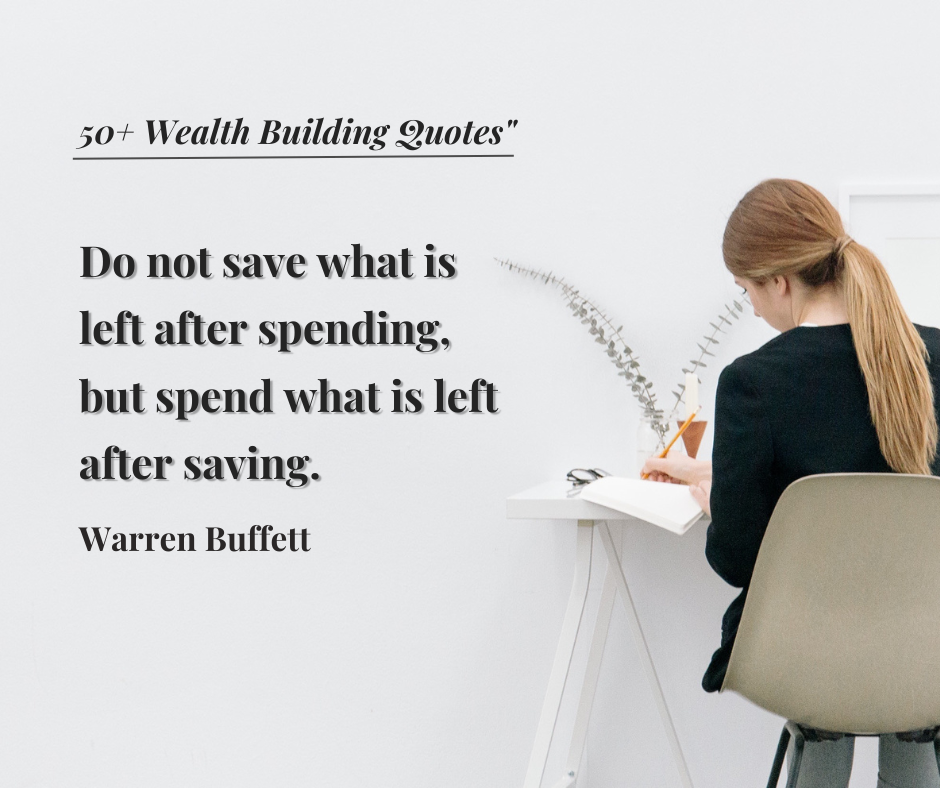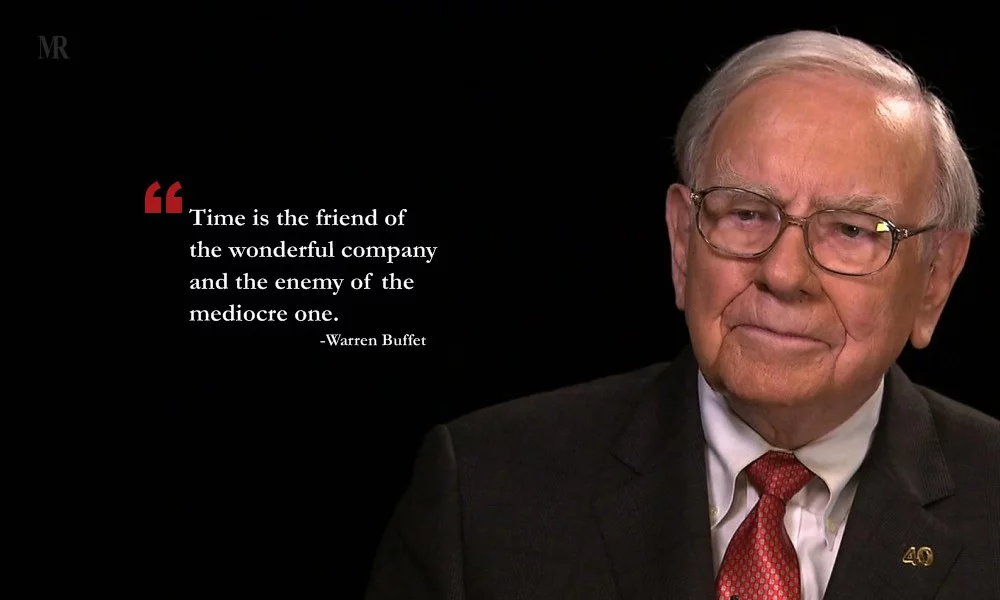50+ Powerful Wealth Building Quotes to Inspire Financial Success (2024)

Did you know that Warren Buffett made 99% of his wealth after turning 50? That’s the power of compound interest and long-term thinking! I’ve found that sometimes the right quote at the right moment can completely shift our perspective on wealth building quotes. As someone passionate about financial education, I’ve curated the most impactful quotes that have inspired millions to build lasting wealth.

Source marketmegood.com
Classic Wealth Building Wisdom
Let me share some timeless perspectives on building wealth that have proven their value across generations. I’ve found that studying these principles helps provide a solid foundation for any financial journey.
The wisdom of Benjamin Graham, known as the father of value investing, still rings true today. His principle that “the investor’s chief problem – and even his worst enemy – is likely to be himself” speaks to the importance of emotional control in wealth building. And this connects beautifully with ancient Roman philosopher Seneca’s insight that “it is not the man who has too little, but the man who craves more, that is poor.”
Traditional wealth-building philosophies often center around what I call the three P’s: Patience, Protection, and Perspective. John D. Rockefeller captured this perfectly when he said, “I believe in the dignity of labor, whether with head or hand; that the world owes no man a living but that it owes every man an opportunity to make a living.” This speaks to the fundamental truth that wealth building is a gradual process requiring consistent effort.
Time-tested money management principles remain surprisingly constant across cultures. The ancient Babylonians, as documented in “The Richest Man in Babylon,” practiced the principle of paying yourself first – saving at least 10% of all income. This same principle was later championed by modern financial experts like Warren Buffett, who emphasized “Do not save what is left after spending, but spend what is left after saving.”
Looking at generational wealth perspectives, there’s an old Chinese proverb that speaks volumes: “Wealth does not pass three generations.” This has been proven repeatedly, with studies showing that 70% of wealthy families lose their wealth by the second generation and 90% by the third. The key lesson here is that building wealth is only part of the equation – maintaining it requires education and values transmission across generations.
Ancient wisdom about money often focuses on balance and character. Aristotle noted that “wealth is evidently not the good we are seeking; for it is merely useful and for the sake of something else.” This aligns with modern perspectives about purposeful wealth creation – building wealth not just for its own sake but as a tool for achieving broader life goals.
One principle that appears consistently across cultures and times is the importance of diversification. The Talmud mentions an ancient version of asset allocation: “Let every man divide his money into three parts, and invest a third in land, a third in business, and let him keep a third in reserve.” This mirrors modern portfolio theory while adding the wisdom of keeping liquid reserves.
Some key principles that have stood the test of time:
- Live below your means – a principle found from ancient Greece to modern America
- Invest in what you understand – emphasized by both ancient merchants and modern investors
- Never risk what you can’t afford to lose – wisdom that appears in texts from ancient China to colonial America
- Create multiple streams of income – a principle practiced by successful merchants throughout history
J.P. Morgan’s observation that “the first step towards getting somewhere is to decide that you are not going to stay where you are” captures the importance of intentional action in wealth building. This echoes ancient wisdom about the importance of decisive action combined with patient persistence.
Would you like me to elaborate on any of these historical perspectives or explore how they apply to modern wealth-building strategies?
Modern Entrepreneurs’ Money Insights
Let me share some fascinating insights I’ve gathered from today’s most successful entrepreneurs about building wealth in the digital age. Their perspectives often challenge traditional wisdom while building on timeless principles.
The approach to risk has evolved significantly in the tech era. Elon Musk’s perspective that “failure is an option here – if things are not failing, you are not innovating enough” represents a dramatic shift from traditional wealth-building caution. Yet this is balanced by his equally important observation about sustainable growth: “The first step is to establish that something is possible; then probability will occur.”
When it comes to creating value, modern entrepreneurs emphasize scalable solutions. Mark Zuckerberg’s insight that “the biggest risk is not taking any risk” comes with an important caveat he often mentions – calculated risks based on data and user needs. This reflects a broader shift toward data-driven decision-making in wealth creation.
Startup founders consistently emphasize the importance of solving real problems. Brian Chesky of Airbnb put it well: “If you want to create a great product, just focus on one person. Make that one person have the most amazing experience ever.” This customer-centric approach to wealth creation differs from traditional product-first thinking.
Digital age money principles often focus on leverage and scalability. Jeff Bezos’s perspective on this is telling: “The most important single thing is to focus obsessively on the customer. Our goal is to be earth’s most customer-centric company.” This shows how modern wealth creation often comes from building systems that can scale while maintaining quality.
Here are some key patterns I’ve noticed in modern entrepreneurial wisdom:
- Focus on soluble problems rather than just profitable markets
- Build systems that scale without proportional cost increases
- Use data to drive decisions rather than just intuition
- Create value first, then figure out monetization
- Think in terms of platforms rather than just products
Sara Blakely, founder of Spanx, offers an interesting perspective on innovation: “Don’t be intimidated by what you don’t know. That can be your greatest strength and ensure that you do things differently from everyone else.” This emphasizes how modern wealth creation often comes from challenging established norms.
The relationship between innovation and wealth creation has evolved too. LinkedIn founder Reid Hoffman notes that “in a world that’s changing really quickly, the only strategy that is guaranteed to fail is not taking risks.” This represents a shift from traditional wealth preservation strategies to more dynamic approaches.
One striking difference in modern perspectives is the emphasis on speed and iteration. Rather than perfect planning, today’s entrepreneurs often advocate for quick testing and adjustment. As Whitney Wolfe Herd of Bumble says, “Build something, test it, learn from it, iterate – that’s the modern way to build successful companies.”
Would you like me to elaborate on any of these modern perspectives or explore how they complement traditional wisdom?
Investment and Saving Quotes
Let me share some powerful investment insights that have really stood the test of time. I’ve found that combining different perspectives on investing and saving provides a more complete picture of wealth building.
Warren Buffett’s wisdom is particularly illuminating for both new and experienced investors. His famous quote “Be fearful when others are greedy, and greedy when others are fearful” captures the essence of contrarian investing. But what’s often overlooked is his equally important insight about patience: “The stock market is designed to transfer money from the active to the patient.” This speaks to the power of long-term holding versus constant trading.
When it comes to stock market insights, Peter Lynch’s perspective is particularly valuable: “Know what you own, and know why you own it.” He emphasized understanding your investments rather than following market trends. This connects with another powerful observation he made about market timing: “Far more money has been lost by investors preparing for corrections or trying to anticipate corrections than has been lost in corrections themselves.”
Real estate investment wisdom often comes from those who’ve weathered multiple market cycles. Donald Trump, before his presidency, made an observation that still rings true: “It’s tangible, it’s solid, it’s beautiful, it’s artistic… and I just love real estate.” But Ray Kroc, who built McDonald’s real estate empire, added crucial context: “The two most important requirements for major success are: first, being in the right place at the right time, and second, doing something about it.”
Here are some time-tested saving principles that consistently appear:
- “Do not save what is left after spending, but spend what is left after saving” – Warren Buffett
- “The habit of saving is itself an education; it fosters every virtue, teaches self-denial, cultivates the sense of order” – T.T. Munger
- “A penny saved is a penny earned” – Benjamin Franklin
- “Save a part of your income and begin now, for the man with a surplus controls circumstances” – Henry Hazlitt
Risk management wisdom often comes from unexpected sources. George Soros’s insight that “The worse a situation becomes, the less it takes to turn it around, and the bigger the upside” speaks to the opportunity in crisis. Yet this needs to be balanced with Jack Bogle’s warning: “Time is your friend; impulse is your enemy.”
Some particularly powerful perspectives on market cycles:
- “Markets can remain irrational longer than you can remain solvent” – John Maynard Keynes
- “The four most dangerous words in investing are: ‘This time it’s different‘” – Sir John Templeton
- “The individual investor should act consistently as an investor and not as a speculator” – Ben Graham
- “Risk comes from not knowing what you’re doing” – Warren Buffett
The insight about compound interest being the “eighth wonder of the world” (often attributed to Einstein) remains one of the most powerful concepts in investing. As Charlie Munger put it: “The first rule of compounding is to never interrupt it unnecessarily.”
Would you like me to elaborate on any of these perspectives or explore how they apply to specific investment situations?
Mindset and Success Quotes
Let me share some transformative insights about the psychology of wealth and success that I’ve found particularly powerful. The mindset behind wealth creation often matters more than the technical strategies.
The psychology of wealth often starts with how we think about money itself. As Morgan Housel notes in “The Psychology of Money”: “Doing well with money has little to do with how smart you are and a lot to do with how you behave.” This connects beautifully with Thomas Stanley’s research in “The Millionaire Mind,” where he found that most wealthy individuals share certain psychological traits like discipline and perseverance rather than just high IQs.
Financial freedom mindset requires a fundamental shift in thinking. Tony Robbins captures this well: “Success is doing what you want, when you want, where you want, with whom you want, as much as you want.” But here’s what’s often missed – it’s not about the money itself, but about the options it provides. Napoleon Hill emphasized this in “Think and Grow Rich” when he said, “Money is only an idea. If you want more money simply convince yourself you already have it.”
Goal-setting perspectives from successful individuals often emphasize vision over mere targets. Jim Rohn’s insight that “Set your goals high enough to get excited, yet low enough to encourage you” balances ambition with practicality. What’s fascinating is how this connects to ancient wisdom about purposeful action – having clear intentions but remaining flexible about the path.
Here are some recurring themes in success principles:
- Focus on value creation before reward
- Embrace temporary discomfort for long-term gain
- View failures as feedback rather than setbacks
- Think in terms of abundance rather than scarcity
- Prioritize growth over comfort
Abundance thinking represents a crucial shift from traditional scarcity mindset. Grant Cardone emphasizes this: “Success is not something that happens to you; it’s something that happens because of you.” This perspective changes how we approach opportunities and challenges.
Some particularly powerful mindset shifts I’ve observed:
- From “I can’t afford it” to “How can I afford it?”
- From “Either/or” to “Both/and” thinking
- From “What if I fail?” to “What if I succeed?”
- From “Is this possible?” to “How is this possible?”
The relationship between mindset and action is crucial. As Carol Dweck’s research on growth mindset shows, believing in your ability to learn and grow dramatically impacts achievement. This applies directly to wealth building – those who believe they can learn to manage wealth typically do better than those with fixed beliefs about money.
Would you like me to elaborate on any of these mindset principles or explore how to apply them in specific situations?
Work and Value Creation Quotes
Let me share some powerful insights about creating genuine value and building sustainable success through work. I’ve found that understanding these principles can transform how we approach business and career development.
Business building wisdom often centers around customer value. Jeff Bezos captures this perfectly: “The most important single thing is to focus obsessively on the customer.” But there’s a deeper truth here that Sam Walton expressed: “There is only one boss – the customer. And he can fire everybody in the company from the chairman on down, simply by spending his money somewhere else.” These perspectives emphasize that sustainable business success comes from solving real problems.
When it comes to entrepreneurship wisdom, Richard Branson offers a refreshing take: “Business opportunities are like buses, there’s always another one coming.” This speaks to the importance of staying alert and agile, but also not getting too attached to any single idea. Paul Graham of Y Combinator adds crucial context: “Make something people want. That’s the fundamental problem. If you don’t solve that, nothing else matters.”
Value creation principles often challenge conventional thinking. Peter Thiel’s observation that “Competition is for losers” emphasizes finding unique ways to create value rather than fighting over existing markets. As Steve Jobs put it: “Innovation distinguishes between a leader and a follower.” The focus should be on creating new value rather than just competing for existing opportunities.
Here’s what successful value creators consistently emphasize:
- Focus on solving real problems
- Build for long-term relationships, not quick profits
- Invest in continuous learning and improvement
- Create systems that scale
- Prioritize customer success over immediate revenue
Professional growth quotes often highlight the importance of continuous development. Charlie Munger’s wisdom stands out: “Go to bed smarter than when you woke up.” This connects with Mark Cuban’s perspective: “Work like there is someone working 24 hours a day to take it away from you.”
Income generation wisdom frequently emphasizes multiple streams. Robert Kiyosaki notes: “The richest people in the world build networks; everyone else is trained to look for work.” This highlights the shift from trading time for money to building systems that generate value.
Some key patterns in work and value creation:
- Excellence in execution matters more than perfect planning
- Build relationships while building business
- Focus on increasing value rather than cutting costs
- Invest in skills that compound over time
- Create processes that can scale without you
Would you like me to elaborate on any of these principles or explore how they apply to specific business situations?
Financial Education and Growth
Let me share my insights about the fascinating relationship between financial education and wealth building. After studying successful individuals’ approaches to learning, I’ve noticed some powerful patterns.
Financial education often starts with a fundamental shift in thinking. Robert Kiyosaki captures this perfectly: “The poor and middle class work for money. The rich have money work for them.” But what’s really interesting is how this connects to Charlie Munger’s emphasis on mental models: “You’ve got to have models in your head… you’ve got to array your experience both vicarious and direct on a latticework of models.”
Learning and development insights consistently show that practical application beats pure theory. Ray Dalio emphasizes this: “Experience is the best teacher, but learning from others’ experiences is much more efficient.” This is particularly true in finance, where mistakes can be costly but learning from others’ mistakes is virtually free.
Here are the key principles successful individuals consistently emphasize:
- Never stop learning about money and markets
- Study both successes and failures
- Learn from multiple disciplines
- Apply knowledge immediately
- Share knowledge to deepen understanding
Financial literacy quotes often highlight the importance of starting early. Benjamin Franklin’s wisdom remains relevant: “An investment in knowledge pays the best interest.” But modern perspectives add important context. Naval Ravikant notes: “Read what you love until you love to read.” This applies perfectly to financial education – start with topics that naturally interest you.
Personal growth perspectives frequently emphasize the compound effect of learning. As Warren Buffett says: “The more you learn, the more you earn.” But there’s a crucial addition from modern thought leaders about the importance of unlearning. Sometimes outdated financial knowledge can be more dangerous than ignorance.
Some key patterns in effective financial education:
- Focus on principles over tactics
- Learn through practice and application
- Study across multiple disciplines
- Build a network of knowledgeable peers
- Document and reflect on lessons learned
Educational investment wisdom often highlights the importance of continuous learning. Mark Cuban puts it well: “Treat every job like you’re going to do it for the rest of your life and opportunities will come from the most unexpected places.” This speaks to the power of deep engagement with whatever you’re learning.
Knowledge building principles in finance often emphasize understanding fundamentals before moving to advanced concepts. Howard Marks notes: “You can’t predict the future, but you can prepare for it.” This preparation comes through building a strong foundation of financial knowledge.
The relationship between education and wealth creation is fascinating. Those who succeed often describe a virtuous cycle – learning leads to earning, which provides resources for more learning. As Confucius said: “By three methods we may learn wisdom: by reflection, which is noblest; by imitation, which is easiest; and by experience, which is the bitterest.”
Would you like me to elaborate on any of these educational principles or explore specific areas of financial learning?
Legacy and Long-term Wealth
Let me share what I’ve learned about building and preserving wealth across generations. The insights here often challenge our typical short-term thinking about money.
Generational wealth requires a completely different mindset from individual wealth building. The Rothschild family principle captures this perfectly: “It takes three generations to build wealth, but only one to lose it.” This connects to John D. Rockefeller’s insight about teaching children: “I believe it is every man’s religious duty to get all he can honestly and to give all he can.”
Long-term thinking insights often emphasize the importance of values over valuables. As Andrew Carnegie noted: “The parent who leaves his son enormous wealth generally deadens the talents and energies of the son, and tempts him to lead a less useful and less worthy life.” This speaks to the crucial balance between providing opportunity and fostering responsibility.
Wealth preservation wisdom consistently highlights diversification across time, not just assets. The old Chinese proverb “Wealth does not pass three generations” isn’t a prediction – it’s a warning about complacency. Successful families often follow the “shirtsleeves to shirtsleeves in three generations” principle by actively preparing each generation for wealth stewardship.
Here are key principles for building lasting wealth:
- Focus on education and values transmission
- Create strong family governance structures
- Develop next-generation financial literacy early
- Build sustainable business systems
- Maintain family unity while respecting individuality
Family financial planning requires balancing current needs with future opportunities. The most successful families I’ve observed create clear structures for both wealth preservation and family member development. They often establish family offices, regular family meetings, and educational programs for younger generations.
Long-term perspectives that consistently appear:
- Invest in the next generation’s capabilities
- Build institutions rather than just portfolios
- Create family mission statements and values
- Establish clear governance structures
- Focus on sustainable wealth creation
The most effective approach I’ve seen combines strong structural elements with flexibility for changing times. As Warren Buffett says about inheritance: “Enough money to do anything, but not enough to do nothing.” This balance helps maintain motivation while providing opportunity.
Would you like me to elaborate on any of these legacy-building principles or explore specific strategies for generational wealth preservation?
Conclusion:
These timeless quotes remind us that building wealth is a journey that requires patience, wisdom, and consistent action. Whether you’re just starting your financial journey or looking to expand your wealth, let these words of wisdom guide and inspire you. Ready to begin your wealth-building journey? Choose your favorite quote and make it your daily mantra!





